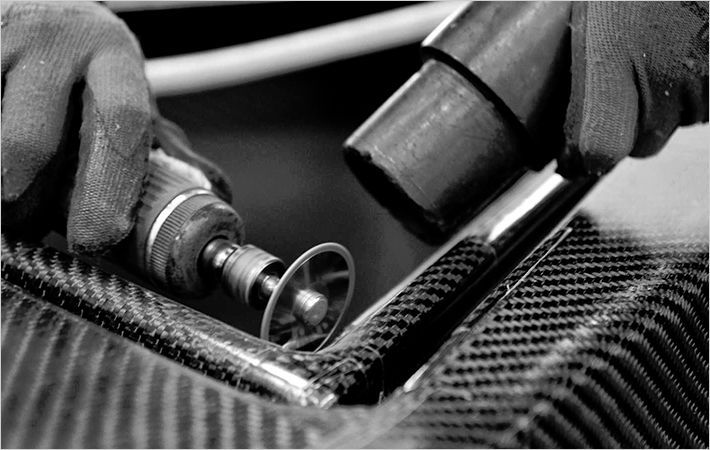Hexcel is celebrating the 80th anniversary of its site at Duxford, UK that was acquired on 7th April 1934 by Cambridge University Don, Dr Norman de Bruyne. De Bruyne wished to use the 50 acre site as an airfield to indulge his passion for flying - and to carry out research into synthetic adhesives and composites for aircraft construction. The original company was registered as Aero Research Limited.
Hexcel is celebrating the 80th anniversary of its site at Duxford, UK that was acquired on7th April 1934 by Cambridge University Don, Dr Norman #
An early success at the site was Aerolite, an experimental urea formaldehyde resin that won approval from the UK Air Ministry for use in aircraft construction and was used in the de Havilland Mosquito. Duxford scientists went on to invent Redux the first metal-to-metal adhesive for bonding aircraft structures - and to manufacture aluminium honeycomb, based on a patent that de Bruyne had filed in 1938.
Hexcel is celebrating the 80th anniversary of its site at Duxford, UK that was acquired on7th April 1934 by Cambridge University Don, Dr Norman #
Roll forward 80 years and the Duxford site continues to make breakthroughs in composites technology that benefit the world of aerospace and other high performance industries including automotive and wind energy.
Hexcel is celebrating the 80th anniversary of its site at Duxford, UK that was acquired on7th April 1934 by Cambridge University Don, Dr Norman #
Hexcel’s European centre for Research and Technology developed the HexPly fibre-reinforced resin system selected by Airbus for all primary composite structures on the new A350 XWB – an aircraft that is 53% composites. The Duxford site is also Hexcel’s UK manufacturing plant, producing resin films, fibre-reinforced resins (called prepregs), adhesives and lightweight honeycomb structures.
Hexcel is celebrating the 80th anniversary of its site at Duxford, UK that was acquired on7th April 1934 by Cambridge University Don, Dr Norman #
Composites have revolutionised the way that aircraft are designed and built and these lightweight materials bring major benefits compared to aluminium. They save weight, which reduces fuel consumption, increases payload and extends flight range. Composites provide greater toughness and durability, do not corrode, and retain their strength over significantly longer periods of time than metals.
Hexcel is celebrating the 80th anniversary of its site at Duxford, UK that was acquired on7th April 1934 by Cambridge University Don, Dr Norman #
Although Hexcel’s Duxford site has been operating and innovating for 80 years we are still at the beginning of the “Composites Age”. Composites are no longer considered specialty or niche products – they are now essential construction materials for all new aircraft programmes. Hexcel is expanding at Duxford and other sites in Europe and the USA to meet the growing demand for composites in the aerospace industry and other growth markets.
Hexcel is celebrating the 80th anniversary of its site at Duxford, UK that was acquired on7th April 1934 by Cambridge University Don, Dr Norman #
Hexcel Duxford

